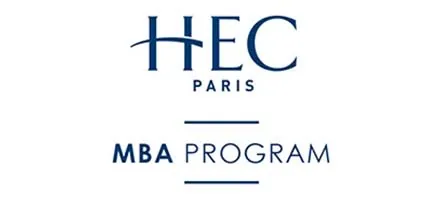
The key to business innovation? Think sound decision-making through the understanding of data.
That’s what business analytics delivers — a means to collect, segment, interpret, and act on data. The industry is exploding, producing master’s of business analytics grads globally who are using analytics to push the needle in industries such as finance, technology, consulting, retail, and entrepreneurship. For some, personal fulfillment is their greatest accomplishment following graduation.
“My biggest accomplishment in my career so far is getting up every day to perform a job that I love while being surrounded by amazing teammates that help me grow both as a professional and a person,” says Esade Business School’s Pol Borrellas i Martín.
ANALYTICS GRADS FINDING FULFILLMENT & SUCCESS
Not only are the graduates of business analytics master’s programs finding fulfillment in their personal lives, their specialized skills are helping them succeed in the workforce. No wonder, business analytics is among the fastest growing master’s programs in business and a field that has become increasingly popular with students and their potential employers. You’ll find a bevy of rankings of these programs with a Google search but none of them are very credible. Still, we’ve picked graduates from schools that have launched solid master’s programs in business analytics with impressive placement stats.
The University of Minnesota’s Carlson School of Management is one of them. Following graduation from Carlson with a business analytics degree, Tanmayee Waghmare landed a $10M deal for a boutique investment firm through connecting with a client on LinkedIn. “This was a very critical deal in my firm’s portfolio at the time because the client was a very popular brand and to help them in their financial journey meant huge success for us!,” says Waghmare.
She wasn’t alone in notching successes after earning her master’s in business analytics. NYU Stern’s Borja Ureta received a promotion only three years after earning his master’s in business analytics. He now lectures university students on social media analytics. For UCLA Anderson’s Leah Greenberg Kelly, she credits her biggest accomplishment as developing trust in her intuition. She says that learning to follow her curiosity and instincts, even when her career path has felt uncertain, has provided the greatest personal and professional rewards. And MIT Sloan School of Management’s Abby Garett is progressing through healthcare as operations insights manager at Pfizer. Here, she manages the development of a dashboard which provides visibility into the shipment and production of the COVID vaccine to the Pfizer CEO and C-suite.

Esade Business School
WHY BUSINESS ANALYTICS?
While an MBA is a traditional route many business professionals take following their undergraduate degree, these grads are happy to have gained a more specialized education to set themselves apart in the workforce.
Seeing the emerging need to be able to process and analyze data, Pol Borrellas i Martín chose Esade’s Master’s in Business Analytics over an MBA to gain technical skills in machine learning, cloud computing, and ultimately differentiate himself in a competitive market.
“The climate crisis, the increasing automation of jobs and inequality are global challenges that require the involvement of everyone, business leaders included, to ensure that no one is left behind and that progress translates into higher welfare for society,” he says. “Being able to reflect and debate about these and other pressing topics with talented and socially-conscious classmates and professors made a difference to me.”
‘BUSINESS ANALYTICS IS THE PERFECT INTERDISCIPLINARY DOMAIN’

USC Marshall School of Business
Purdue University Krannert School of Business’ Maharshi Dutta wanted to pursue business analytics in order to become a specialist rather than a generalist in the technology field. Similarly, UCLA Anderson School of Management’s Leah Greenberg Kelly wanted to dive deeper into new ways to leverage the power of data to solve organizational challenges and reveal trends. Others felt the pull to a master’s because of passion for the field. That was the case for USC Marshall School of Business alumna Jolee Zhao.
“Business analytics is the perfect interdisciplinary domain that integrates multiple areas of my interest: Business, statistics, computer programming, and problem-solving,” says Zhao.
Carnegie Mellon’s Douglas Levine was drawn to the business analytics at the Tepper School of Business due to the way the course content was designed around solving real business problems.“Given the focus that many companies have on better utilizing big data for strategy decisions, I wanted to gain insight into these methods both to apply them myself and effectively manage analysts in the future,” he says. “We utilized real data from companies and were pushed to analyze it to determine how the company could best accomplish their objectives based on the empirical evidence. As a result, it was easy to draw parallels to my job, allowing me to bring examples from work into the classroom to discuss or take learnings from class and immediately apply them at work.”
Our Masters’ Series
Meet the Masters of Business Analytics
Meet the Masters of Management
Meet the Masters of Supply Chain Management

Carnegie Mellon Tepper School of Business
BUSINESS ANALYTICS AT CARNEGIE MELLON
Each business analytics master’s program offers students something different. For the Tepper School of Business’ business analytics master’s program, the hands-on learning model is what sets them apart. Senior Associate Dean of Education, Willem-Jan van Hoeve, credits this approach to the school’s faculty and intentional curriculum.
“We are what we do,” he says.
With a pool of dedicated, active, and prominent researchers, Tepper’s high-caliber faculty translates their work directly into the classroom. Instructors have a wide range of experience and credentials; some have their PhDs, while others are affiliated with the School of Computer Science at Carnegie Mellon. Many are at the front line of developing business analytics’ tools and applications.
COMMUNICATION SKILLS A KEY PART OF THE TEPPER APPROACH TO BUSINESS ANALYTICS
van Hoeve says that unlike many other schools, Tepper designed the program from the ground-up in order to create specific courses that are intentionally sequenced. With a focus on creating course content on machine learning to help students understand how to optimize business applications, the curriculum also places a large emphasis on leadership rather than solely data science in order to create well-rounded graduates.
“Just being able to solve those business problems is not enough; you have to translate that to an audience,” van Hoeve explains. “Business communication and leadership skills are important to actually make a difference in business analytics.”
Since launching the master’s in 2018, Tepper has produced three small and intimate cohorts and expects to grow to 40-50 students per year in future years. The program, which is delivered in a part-time, online format, consists of immersion weekends that take place three times a year. While Tepper hasn’t been able to run the in-person weekends since the pandemic’s start, they’ve replaced them with online activities, such as workshops, extracurricular social engagements, and research seminars by faculty. Coming out of the program, van Hoeve says that students gain a thorough understanding of the business value of analytics.
“Moving forward, the change that we envision is closer integration with the other programs that we offer. We have some dedicated courses for this particular program, but they can be interesting for MBA students as well, especially our part time online hybrid students,” he says.

Carnegie Mellon Tepper School of Business
THE IDEAL BUSINESS ANALYTICS CANDIDATE
Expressing the need for analytics skills throughout the entire workforce, van Hoeve says there are a few ideal candidates for a master’s program in business analytics. People right out of college who have studied engineering, business, or economics, people who want to change careers, and people who want a better understanding of the business landscape are their target applicants.
While a background in math, probability, and coding is an asset, van Hoeve says it’s not a prerequisite. “Some students may be overwhelmed by some of the content of the programs; some think that they actually need to be proficient entirely in each of these topics before they even can start, but this program is intended to teach them those things,” he says. “They can do it, even though it may sometimes be a bit intimidating. If they’re determined, there’s value to taking a business analytics program. And if they understand what the value is to them individually, then they should go to the best program that fits their particular career choice.”
ADVICE FROM GRADUATES
University of Minnesota Carlson School of Management’s Tanmayee Waghmare advises that prospective students get comfortable with being uncomfortable during their business analytics master’s. “Given the rigorous nature of the program, be prepared to work hard. Try to make the most of every opportunity that comes your way, whether it’s team projects, public speaking, volunteering, networking, job fairs. Also, make sure you manage your time well by prioritizing your to-dos. Lastly, don’t forget to have fun and forge long-lasting friendships!”
Maharshi Dutta of Purdue University Krannert School of Business echoes Waghmare’s advice, adding that passion for business analytics will help students thrive in the program.
“Mentally prepare for hard work, diligence and loads of reading, as the field of analytics is constantly evolving and you need to evolve along with it,” says Dutta. “Data is the biggest and the most valuable asset in today’s world. It is probably the largest source of revenue for technology firms, but little can be done without having an interest or love for it.”
Along with hard work and passion, Rochester University Simon School of Business’ Guilherme (Gui) Plentz de Liz advises that prospective candidates own their story when applying. He says, “I believe the most important thing is communicating your story in the right way. At the end of the day everyone has the grades and the internships. What separates you from the rest is showing the sides that enlighten you.”

Purdue University Krannert School of Business
Learn more about the educational and career journey about these Master’s in Business Analytics students who are creating impact. Click on the links below.
MEET THE MASTERS
| Alumni Member | Master’s In Business Analytics | Current Employer |
|---|---|---|
| Douglas Levine | Carnegie Mellon University (Tepper) | Goldman Sachs |
| Pol Borrellas i Martín | Esade Business School | Typeform |
| George Ponirakis | Imperial College Business School | Lloyds Banking Group |
| Tanmayee Waghmare | University of Minnesota (Carlson) | Capital One |
| Borja Ureta | NYU Stern School of Business | KPMG |
| Maharshi Dutta | Purdue University (Krannert) | Deutsche Bank |
| Guilherme (Gui) Plentz de Liz | University of Rochester (Simon) | Ernst & Young |
| Leah Greenberg Kelly | UCLA (Anderson) | Nike |
| Jolee Zhao | USC Marshall School of Business | Ernst & Young |
| Chandini Gangadharan | University of Washington (Foster) | Amazon |
| Natalie Honda | Indiana University (Kelley) | The Jet Propulsion Laboratory |
| Edward Haryono Tanuwijaya | Duke University (Fuqua) | Amazon |
| Abby Garrett | MIT (Sloan) | Pfizer |
Our Masters’ Series
Meet the Masters of Business Analytics
Meet the Masters of Management
Meet the Masters of Supply Chain Management









